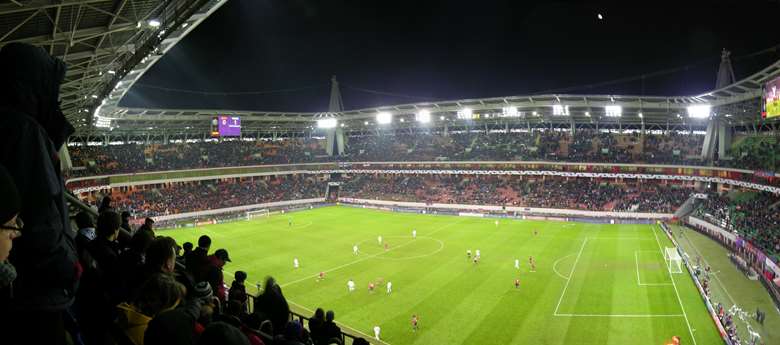The Long View | Sport and the arts are friends, not foes
Andrew Mellor
Monday, February 1, 2021
The pandemic presents an opportunity to bring sport and the arts closer together, writes Andrew Mellor

When the chips are down, you can always blame the Premier League. And plenty in our industry have. ‘There’s too much money in it,' they cry. ‘They’ve been reckless,' they moan. ‘They’ve broken the rules,’ they accuse. Jealous much? And all because the country’stop tier football league got its act together early on to resume performances that millions of people derive pleasure and sustenance from.
One colleague on Twitter got all hot and bothered over the fact that the League’s bulging coffers allowed it to test its players every other day. Hmm… Isn’t that precisely the same testing routine operated and self-funded by the London Symphony Orchestra? He lambasted the League for allowing players to hug during a goal celebration. But that wasn’t allowed, it was an acknowledged breach of the rules. These things happen when rules change fast. I’ve seen opera singers embrace instinctively at the final curtain when they shouldn’t have.
As for the league’s money, that’s consumer capitalism, folks! Supply and demand. Lots of that money is currently being diverted into the lower league clubs that operate on similarly precarious finances to orchestras. Many more man hours are being spent by Premier League clubs getting generations of retired players to phone lonely, elderly supporters and help them through lockdowns with conversational support. And apparently, a Premier League player is acting as the nation’s conscience on shoddy government treatment of poor children.
It’s lazy to bemoan the football industry while ignoring the sustenance millions get from its leagues, not least when the parallels with our own sector are so real. Despite the opposite financial model, we’re really in the same business: getting the best from elite specialists and filling seats with passionate individuals who want to watch them at work. If our sector enjoyed the same revenues and commercial advantages as the Premier League, we wouldn’t have hesitated to act on the same ravenous desire to survive and thrive – in some instances, we did. As for morals, we also cosy-up to bling and privilege, taking their money in return for adverts in our programmes. Like the Premier League, it doesn’t dim our passion for the actual event.
We’re really in the same business: getting the best from elite specialists and filling seats with passionate individuals who want to watch them at work
In the long term, the pandemic presents an opportunity to bring sport and the arts closer together. In sports-mad Australia, it already has. In June, the country’s Live Entertainment Industry Forum was hastily formed with a mission ‘to support the safe reactivation of events with live audiences across Australia,’ uniting institutions as varied as opera companies and football teams.
That’s not as unusual as it sounds. For years, Queensland Ballet has been working on shared physical training programmes with the Brisbane Lions Aussie rules club. Researching an article for the magazine Limelight recently, I encountered multiple examples of elite sports sides working with opera houses, ballet companies and orchestras on challenges ranging from box office to performance nerves. One of them was right on my doorstep in Malmö.
The gulf society has placed between these two spheres is shrinking as quickly as the gender stereotype that ballet is for girls and football is for boys. ‘There is, more than ever, a common understanding that the good global citizen is appreciative of both [sport and culture],’ I was told by Queensland Ballet’s Head of Strategic Engagement, Genevieve Dunn. In Malmö, where there are exactly the same number of season ticket holders to Malmö FF as there are subscribers to Malmö Opera, work is underway to cultivate citizen pride and loyalty across both organisations to the advantage of each. Passionate singing isn’t all that unites them.
The Malmö partnership started with shared outreach programmes – a reminder that it’s in the education sector where appreciation for sport and the arts can be made or broken (ditto the fostering of elite talent). We know the trajectories are full of parallels, whether a pupil becomes a passionate supporter of the Liverpool Phil/LFC or an elite swimmer/violist. Beyond talent, we both depend on coming together in large numbers to experience something wonderful. It would be wise to get our heads together, as we try to convince the world to do so again.